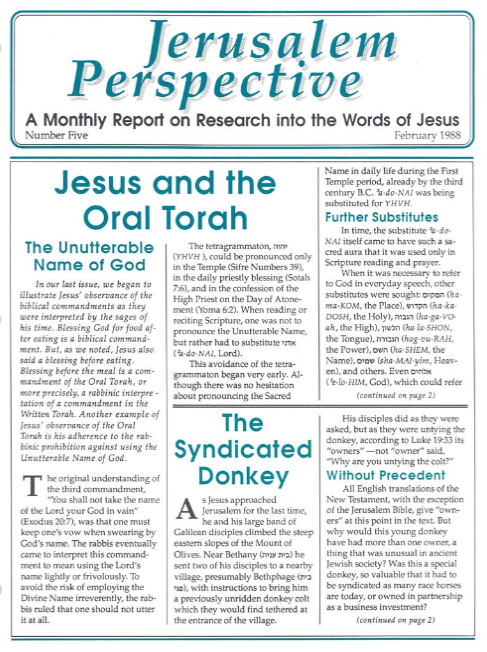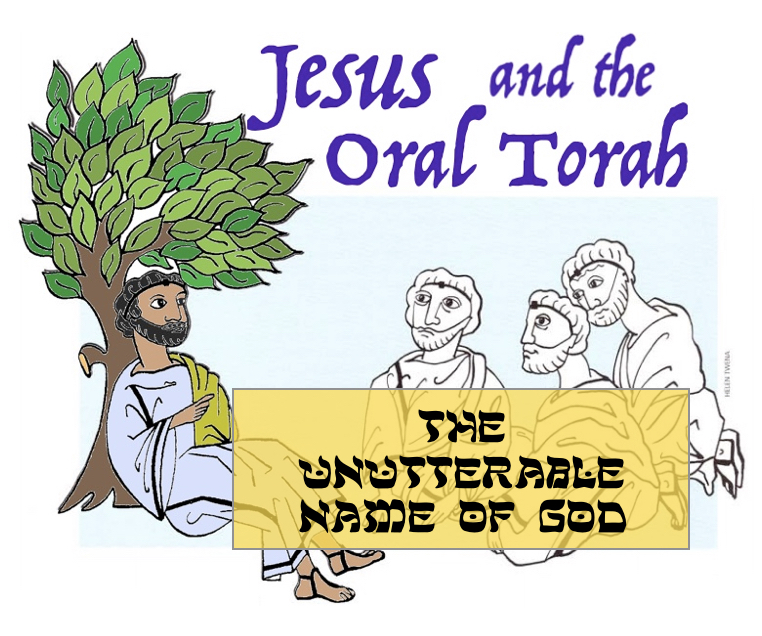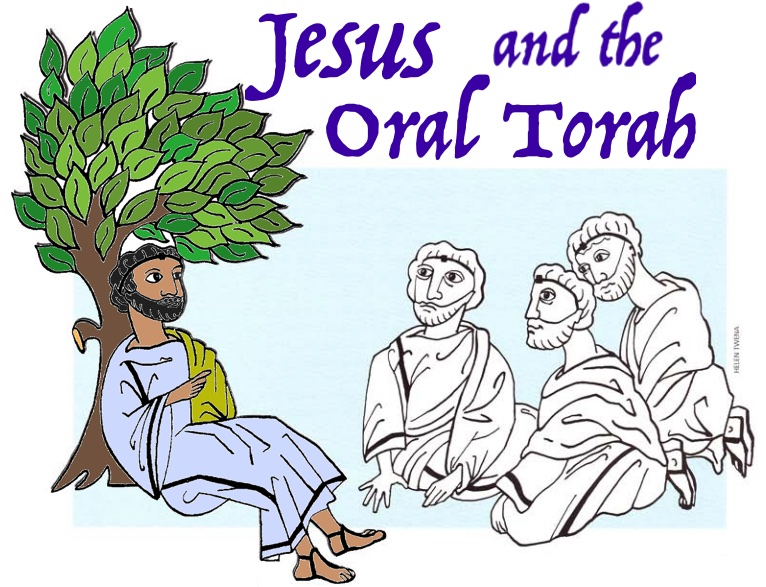Another example of Jesus’ observance of the Oral Torah was his adherence to the rabbinic prohibition against using the Unutterable Name of God.
The original understanding of the third commandment, “You shall not take the name of the LORD your God in vain” (Exod. 20:7), was that one must keep one’s vows when swearing by God’s name. Israel’s ancient sages eventually came to interpret this commandment to mean using the LORD’s name lightly or frivolously. To avoid the risk of employing the divine name irreverently, the sages ruled that one should not utter it at all.
The Tetragrammaton, יהוה, YHVH, could be pronounced only in the Temple (Sifre Numbers §39), in the daily priestly blessing (m.Sotah 7:6), and in the confession of the high priest on the Day of Atonement (m.Yoma 6:2). When reading or reciting Scripture, one was not to pronounce the Unutterable Name, but rather, was to substitute אֲדֹנָי (’a⋅do⋅NĀI, “Lord,” literally, “my lords”).
This avoidance of the Tetragrammaton began very early. Although there was no hesitation about pronouncing the Sacred Name in daily life during the First Temple period, by the third century B.C., ’a⋅do⋅NĀI was being substituted for YHVH.[1]
Paid Content
Premium Members and Friends of JP must be logged in to access this content: Login
If you do not have a paid subscription, please consider registering as a Premium Member starting at $10/month (paid monthly) or only $5/month (paid annually): Register
One Time Purchase Rather Than Membership
Rather than purchasing a membership subscription, you may purchase access to this single page for $1.99 USD. To purchase access we strongly encourage users to first register for a free account with JP (Register), which will make the process of accessing your purchase much simpler. Once you have registered you may login and purchase access to this page at this link:

- [1] For a discussion of the original pronunciation of the divine name, see my “‘Jehovah’: A Christian Misunderstanding.” ↩
































































































